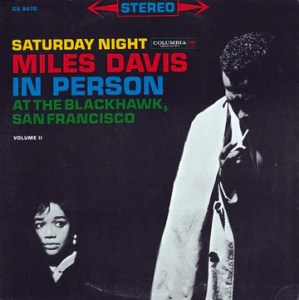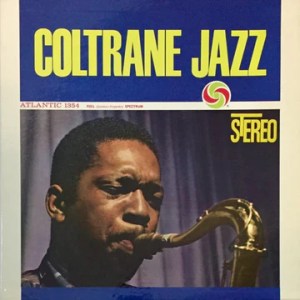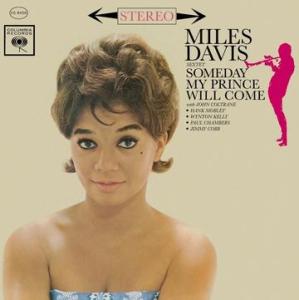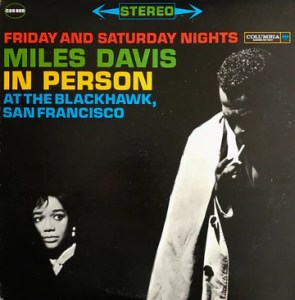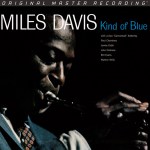 Hot Stamper Pressings of Miles’s Albums Available Now
Hot Stamper Pressings of Miles’s Albums Available Now
Reviews and Commentaries for the Music of Miles Davis
One of our good customers had this to say about some Hot Stampers he purchased a long time ago (bolding added by me):
Hey Tom,
I imagine you get a little bored with audiophile negativity around the concept of Hot Stampers. I have to admit, they are expensive and I sometimes just can’t push myself to buy (even though I want to). As an alternative I have purchased some of the “new” remastered all analogue classics like Kind of Blue hoping to get great sound.
I listen for enjoyment, but like many folks I get caught up in the hype of technology hoping for better sound. Oh my gosh, so much money wasted on magic buttons, secret sauce and dilithium crystals for a different but really not better sound.
So, to the point, I purchased a copy of Kind of Blue from you about 2 years ago. It was graded by you as A++ – A+++ on both sides. I tell myself this story when I need an incentive and want to buy another Hot Stamper.
I played the newly remastered UHQR KOB. It was quiet, wonderful, excellent.
And so just for fun I decided to listen to the copy of KOB I bought from you.
My Hot Stamper is a re-press from Columbia probably from the ’70’s. The difference between both copies was startling.
My Hot Stamper copy of KOB had bigger dynamics, air, tonal awareness, spatial sense.
Bass, sax, piano and Miles – alive and vibrant. It sounded better. The only negative difference was the vinyl was not as quiet.
My experience with the albums I buy from you has always been satisfying because they sound so good. So thanks and screw all the naysayers .
Anyways, just felt like saying thanks and trying to push myself forward on my next purchase.
Best, Art
Art,
Thanks for your letter. You are our letter of the week!
This caught my eye:
“…so much money wasted on magic buttons, secrete sauce and dilithium crystals for a different but really not better sound.”
Ain’t it the truth. Lots of smoke and mirrors and fancy packaging, but when the record in question is at best mediocre, as you discovered for yourself, we describe such a record as putting lipstick on a pig.
Michael Fremer says it’s the best KOB ever, and will be for all time.
Why can’t you hear what he can?
Seriously, could there be a more absurd and ridiculous statement? When discusssing pressings, this kind of certainty is the unmistakable mark of shallow and banal thinking. Audiophiles as a group evince far too much credulity and not nearly enough skepticism about both records and audio, which is why they are always looking for easy answers and quick fixes.
They don’t want to do the work. They want someone to tell them they don’t have to do the work.
To presume that there is a clear answer to the question, “What is the best sounding pressing of Kind of Blue?” is a sign that such a person is a True Believer. He is no doubt someone not at all interested in entertaining disconfirming evidence, no matter the source or the strength.
To take it to an even more absurd level, the reviewer in question says it will be the best ever forever. Well, that’s certainly good to know!
Mistakes Were Made
We ourselves used to make mistakes along these lines. We also make no effort to deny the fact that we didn’t know what we were talking about. We made a quite foolish claim in a review from 2006 for Rock of Ages.
The audiophile press may do things differently, but here at Better Records the practice of making “definitive sonic assessments” goes against everything we believe to be true about records: that any judgment we’ve made about any record, good or bad, as well as any knowledge we may think we possess, will always be incomplete, imperfect, and provisional.
However, there is one thing that will never change: our deep appreciation of the fundamentally mysterious nature of records, based on the thousands of experiments we’ve carried out since making that silly statement about Rock of Ages in 2006.
And sometimes, after hundreds and hundreds of observations has led us to believe that all swans are white, we find a black one and have to admit, and not for the first time, that we were wrong. (Well, we don’t have to, but we do, mostly because it mocks the risible certainty of the audiophile reviewing class and their low-rent hucksterism.)
Doing the Work
The “believers” have chosen to buy into this particular reviewer’s nonsense rather than staying focussed and doing the work. What work you ask? Why, the work it takes to find a better sounding vintage copy. (For those of you who are up for the challenge, we advise sticking with the 6-Eye and 360 pressings rather than digging for the 70s reissue like the one we sold Art. The right 70s pressings have especially hard-fo-find stampers, which explains why you rarely see them on the site.)
Art, perhaps you see now that buying remastered records — even those that get raves in the audiophile press — is a fool’s game and more often than not a waste of money, money that would have been much better spent on records that have the potential to sound amazingly good.
And by that we mean records put out by major labels for the general record buying public and pressed on regular weight vinyl.
Those are the ones that can have real analog magic, as your most recent head to head comparison — with a 70s reissue no less — proved once again.
(more…)
